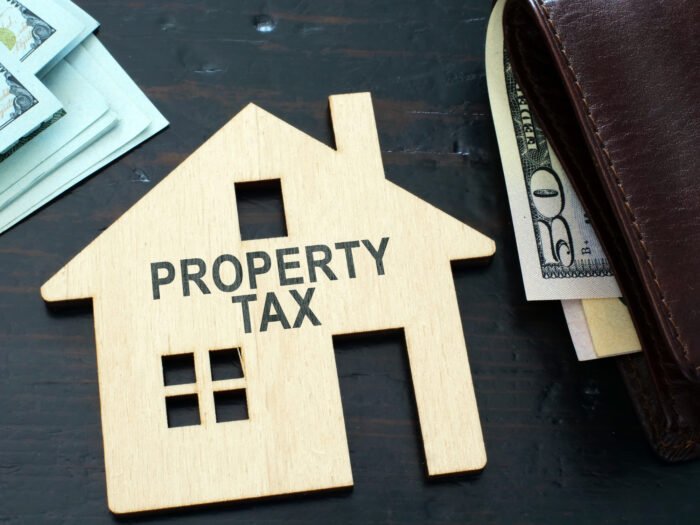LINCOLN — Education organizations have joined opposition to the Nebraska Legislature’s current draft plan to reform a school funding model in pursuit of property tax relief.

The Education Collaboration — representing teachers, administrators, school boards, rural schools and more — said a draft amendment to Legislative Bill 9 “risks breaking” an existing current school funding formula.
That is because of the “disproportionately large percentage of school funding” that will be channeled through the state to schools under the plan: almost $2.3 billion. One section of a draft amendment, and LB 1, suggests eliminating school general fund levies in the future, as Gov. Jim Pillen suggested this summer.
“This proposed shift would leave the allocation of critical dollars solely to future Legislatures, significantly undermining local control,” the Education Collaboration said in a statement.
Maximum 25-cent tax levy
Eight organizations represented in the group are: the Nebraska Council of School Administrators, Nebraska Association of School Boards, Nebraska State Education, Schools Taking Action for Children’s Education (STANCE), Greater Nebraska Schools Association, Nebraska Rural Community Schools Association, Educational Service Units Coordinating Council and Stand for Schools.
The intent of the Legislature is to find property tax relief by going through the largest property tax collector, at about 60% of local bills: K-12 public schools, of which there are 244 districts.
The original LB 9, from State Sen. Jana Hughes of Seward, would have gradually lowered school districts’ taxing authority to 25 cents by 2033-34. By dropping the rate first to 65 cents, every two years lawmakers would have needed to find additional funds to lower it by 10 more cents. It was received more favorably than a complete elimination of that levy authority.

A draft amendment still included language that this taxing authority should go away. State Sen. Lou Ann Linehan of Elkhorn, the Revenue Committee chair, said it “was mistakenly included.”
“The Revenue Committee chose twenty-five cents because LB 9 ultimately lowered the levy to twenty-five cents,” Linehan wrote.
Linehan said she was “greatly disappointed” by the Education Collaboration statement and said most are funded by property taxpayers. She noted that several schools already receive 60% of funding from state and federal sources.
“So, if 25% is not the right number, what is the right number?” Linehan asked, which she has done multiple times throughout the special session.
School Funding Commission
Education Collaboration said the proposed plan to LB 9 doesn’t provide new funding to schools. Instead, it is “a net loss of levying authority, leading to cuts in schools and reduced support for students.” Multiple superintendents and school board members, who have used funding models from the Nebraska Department of Education, have estimated they would be at a net loss, too.
The group said “there is a pressing need for property tax reform” but said increasing funding, particularly to address educator workforce shortages, “is equally important.”
“The rushed nature of this process does not allow for careful planning, adequate forethought or the inclusion of school finance experts and modeling to prevent adverse impacts and unforeseen consequences,” the statement reads.
The education-led group recommended establishing a School Funding Commission “to avoid disastrous results” with at least the following members:
- School board members.
- School business managers from diverse schools.
- Nebraska Association of School Board delegates.
- Educators represented by the Nebraska State Education Associations.
- School finance officials from the Nebraska Department of Education.
Previous K-12 investments
Linehan said “clearly, the collaboration is confused as to what the bill does” and said $1.8 billion would be new state funding. However, it would largely replace funds that could have come to schools through property taxes and schools would retain at least $950 million in taxing authority.

She pointed to 2023 when the Legislature increased state aid to schools by $328 million, “the largest increase in state funding in decades.” That includes $1,500 in foundational aid per student and doubling state coverage of special education funding.
A revised LB 9 amendment hasn’t been finalized for consideration, or for the public to weigh in on, but Linehan said the intent is still to annually increase state aid funding to schools by 3%.
In a special session, lawmakers are not bound to 90-day or 60-day sessions. Linehan has said there is no end date for a reason and that as long as 25 lawmakers want to stay, they will.
The Legislature finished its ninth day Thursday and abruptly adjourned for the weekend. Linehan said that was for her to negotiate and for the committee to be ready to meet come Monday morning. Debate on LB 9, or a new tax package, could come as early as Tuesday.
GET THE MORNING HEADLINES DELIVERED TO YOUR INBOX

